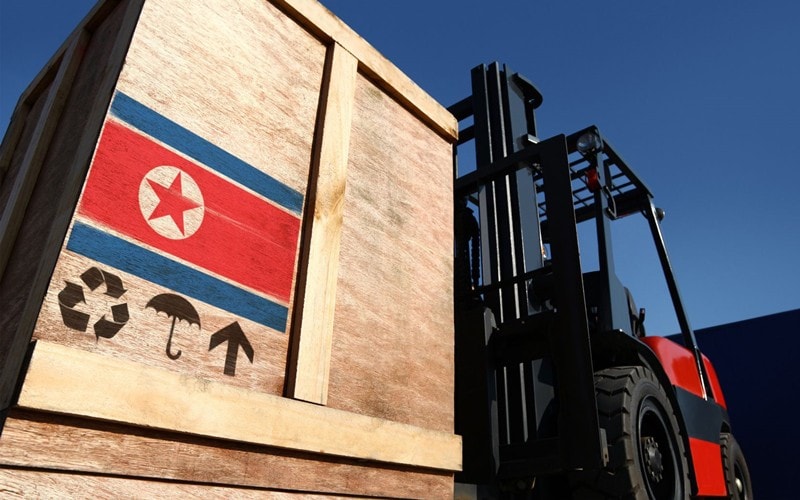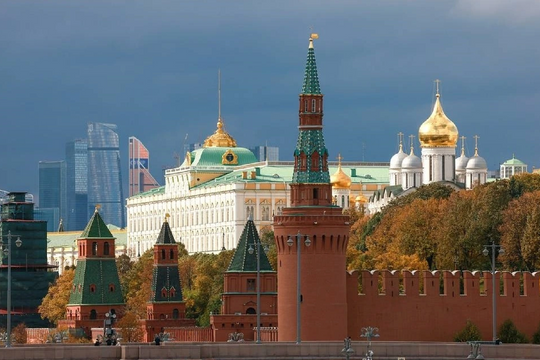Pressure on North Korea as it closes border with China
North Korea continues to maintain border closures as the Covid-19 pandemic continues to worsen, putting enormous pressure on the country's economy.
Border closures have been extended, and are now continuing.
Six months after North Korea first announced the closure of its border with China to prevent the spread of Covid-19, the North Korean economy is showing signs of decline. Cross-border trade between China and North Korea was supposed to reopen in June 2020, but the border remains closed, severely affecting the lives of North Koreans.
|
| North Korean goods. Photo: Getty. |
According to sources inside North Korea, it is possible that the country has decided to postpone the resumption of trade with China due to fears that the Covid-19 epidemic will spread further inside the country. The Covid-19 pandemic has recently broken out in northeastern China, including Liaoning province, which borders North Korea. The recent resurgence of cases near the China-North Korea border may be the reason for the continued closure of the border.
The above judgment is based on the most recent activities of North Korean leader Kim Jong-un. In the meeting of the Politburo of the Workers' Party of Korea chaired by Mr. Kim, the meeting focused on the Covid-19 pandemic. At the conference, Kim Jong-un warned against complacency and urged more stringent measures to control Covid-19 in the second half of 2020. Thus, fighting the epidemic may be the top priority of the North Korean government at present.
Severe impact on North Korea's economy
But anti-epidemic measures could affect North Korea's economy and people's lives there.
North Korea is facing one of its most difficult financial years ever. Trade between China and North Korea plunged by 90% in March and April 2020 compared to the same period in 2019.
Since UN sanctions against North Korea took effect in 2016, China has accounted for 95% of North Korea's trade with the world. Since then, the flow of Chinese exports to North Korea has been relatively steady.
China has also been North Korea's main export market in recent years.
Although sanctions have significantly limited the variety of products North Korea can export, both Beijing and Pyongyang have found alternative ways to continue their close trade relationship. For example, North Korea exports a wide range of non-prohibited items, such as watches, wigs, and false eyelashes, to China in large quantities. The financial gains from this are not very large, but they do meet some of North Korea’s large demand for foreign currency.
According to Chinese statistics, Chinese food exports to North Korea hit a record high in 2019. This explains why food prices in North Korea have remained relatively stable despite the poor harvest there in early 2020.
It is also worth noting that China-North Korea trade is concentrated mainly in the Chinese border provinces of Liaoning and Jilin – which alone accounted for around 60% of total bilateral trade in 2016, once again demonstrating the importance of this border region in sustaining the already struggling North Korean economy.
Since January, North Korea has been unable to import many basic goods such as cooking oil, flour, and even rice. Prices for everyday goods have skyrocketed and food insecurity is growing.
The UN representative in North Korea, Tomas Ojea Quintana, has repeatedly mentioned the dire economic situation in North Korea, saying that food insecurity was a problem for many ordinary North Koreans even before the Covid-19 pandemic.
|
| Border area of three countries: North Korea, China, and Russia. Photo: AP. |
Social impact
In addition, North Korea is also witnessing an increase in homelessness.
Drug prices have also risen significantly, and many North Korean patients with chronic diseases have been unable to buy their medicines due to the suspension of imports from China. The situation is so dire that the North Korean Ministry of Health has ordered hospitals in each province to produce their own medicines. But most hospitals have had difficulty implementing this directive due to a lack of equipment and raw materials.
The situation in the border region is particularly difficult because most people there depend on the Chinese market for their livelihood. Faced with this reality, North Koreans have had to rely on other means of livelihood, such as gold mining, berry picking to sell at the market, while others risk smuggling across the border.
According to local sources, many North Korean factories are at risk of closing due to the long-term suspension of trade with China.
Even people's lives in the capital Pyongyang are facing many difficulties due to the Covid-19 pandemic.
On July 7, 2020, North Korean media announced that North Korea's land, air, and sea ports have been completely closed to prevent the spread of Covid-19. Any objects brought into North Korea will be burned or disinfected.
Currently, only urgent essentials are allowed across the border into North Korea. But this is difficult. All imports from China must undergo mandatory quarantine and thorough disinfection before being transported inside North Korean territory.
The recent tightening of restrictions to prevent Covid-19 may make the distribution of essential goods even more difficult./.




.jpg)


.jpg)


